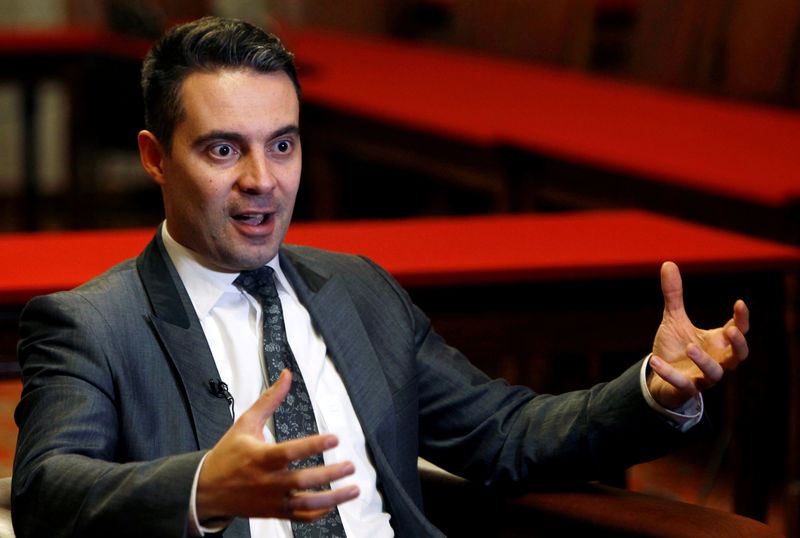BUDAPEST (Reuters) - Hungary's radical nationalist opposition Jobbik party will campaign in 2018 elections on a drive for higher wages as it says the country's huge wage gap relative to western Europe has triggered a mass migration westward that must be stopped.
Jobbik has been moving away from its roots as a far-right, anti-Semitic radical group and is targeting a broader swathe of the electorate ahead of next year's vote, aiming to build on its 11 percent support rate in recent polls.
Party leader Gabor Vona told a news conference on Tuesday that low wages relative to western Europe had led hundreds of thousands of people to head for the west and also helped increase the indebtedness of Hungarian households over the past decade.
"We believe this (low wages) is the most important issue in Hungary, and the root cause of all other problems," Vona said.
Prime Minister Viktor Orban's government has already been hiking wages and has also raised minimum wage levels sharply.
In March, Jobbik launched an initiative with politicians from eight Central European countries calling for a "European Wage Union" aimed at seeking more equal wages within the EU.
The committee that launched this initiative includes Jaak Madison, an Estonian politician who represents the Conservative People's Party of Estonia, and Poland's Solidarity80 trade union, Jobbik said.
Vona said Jobbik was also committed to Hungary's European Union membership.
"We have submitted the wage union proposal to Brussels as we believe the unity of the EU can be preserved and Central and Eastern European countries can also find their part in it," he said.
"Jobbik is absolutely committed to EU membership."
This marks a change in stance. In 2010, when Jobbik first entered parliament, the party had expressed eurosceptic views in its programme. Before elections in 2014 it said it wanted a referendum on EU membership.
Instead of its economy catching up in competitiveness with the west, Hungary's only competitive product now is its skilled and cheap labour, Jobbik said in a statement.
"Central Europe has aged and has been deserted... The mass emigration from our region puts downward pressure on wages in the west, while production is relocated to the east from the west," it added.
Orban's right-wing Fidesz party had a 33 percent support rate in the latest opinion poll by Tarki. Jobbik had 11 percent while the other main opposition party, the Socialists, had 10 percent. About 36 percent of voters were undecided.

Vona is aiming to attract voters from the left, where opposition parties are in disarray, and also from the right, he told Reuters earlier this year.